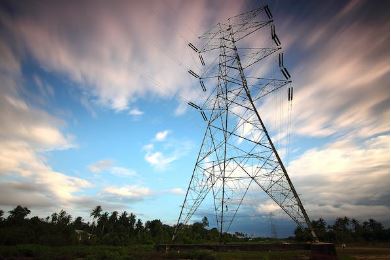The Digitalization of the Energy Sector: Powering the Future
With the increasing demand for pure and sustainable energy sources, digital technologies have become crucial for optimizing energy systems. Digitalization in energy sector rapidly transforms how energy is produced, distributed, and consumed. Integrating advanced sensors, data analytics, and artificial intelligence (AI) into the energy sector enables utilities to enhance their operational efficiency. At the same time, it helps in improving customer service and engagement. Digitalization in energy sector creates new business models, such as peer-to-peer energy trading and decentralized energy systems. These models disrupt traditional energy markets and empower consumers to participate in the energy transition.
Read on to learn more about the impact of digitalization on energy production, the future of digitalization in energy sector, and how to ensure cybersecurity in the digital energy landscape.
Impact of Digitalization on Energy Production
Digitalization has significantly impacted the energy production industry in recent years, bringing many benefits and positive changes. Here are some examples:
1.Improved efficiency: Digitalization has enabled energy producers to optimize their processes, enhancing efficiency and reducing costs.
2.Increased renewable energy: The unification of renewable energy sources into the grid has been made simpler by digitalization. Advanced forecasting models have also been developed to anticipate energy availability, allowing utilities to manage the grid.
3.Enhanced safety: Digital technologies can monitor and control energy production processes remotely, reducing the need for human intervention.
4.Greater customer engagement: Smart meters enable customers to easily track their energy usage and take control of their billing. By offering real-time information on energy consumption, smart meters assist customers in identifying opportunities to save energy.
5. Improved sustainability: This process can facilitate the increased integration of renewable energy sources. Additionally, it can enhance resource utilization efficiency, aiding in the shift toward a more sustainable energy system.
The Future of Digitalization in Energy
The future of digitalization in energy sector is very promising, with significant advancements expected in the coming years. The use of digital technology is already transforming the energy sector. Integrating digital tools and technologies allows for more efficient and effective operations across the industry.
One central area where digitalization is expected to impact significantly is the development and deployment of renewable energy technologies. Digital technologies can improve the performance and efficiency of renewable energy systems and optimize their operation and maintenance.
Another area where it is expected to play a significant role is in developing smart grids. Smart grids are designed to use digital technologies to optimize electricity distribution, reduce energy waste, and improve the reliability of energy supply. These grids use sensors, communication networks, and advanced analytics to manage energy flows.
How to Ensure Cybersecurity in the Digital Energy Landscape
The digital energy landscape is expanding rapidly with the integration of advanced technologies like the Internet of Things (IoT), big data, and cloud computing. Here are some ways to ensure cybersecurity in this area:
1.Implement Strong Access Controls: Limit access to critical systems and data to only authorized personnel. This can be achieved through multi-factor authentication, password management policies, and role-based access controls.
2. Regularly Update and Patch Systems: Keep software and systems up to date with the latest patches and updates to prevent vulnerabilities from being exploited.
3. Conduct Regular Risk Assessments: Identify potential risks and vulnerabilities, evaluate the impact and likelihood of an attack, and develop mitigation plans.
Digitalization in energy sector is paving the way for a more sustainable, efficient, and reliable future. The increasing use of renewable sources drives the energy sector’s transformation, adopting smart grids and integrating advanced technologies. While cybersecurity threats and data privacy concerns need to be addressed, the potential benefits of digitalization in energy sector are significant. Digitalization is revolutionizing how we produce, distribute, and consume energy and playing a crucial role in decreasing greenhouse gas emissions and battling climate change.




